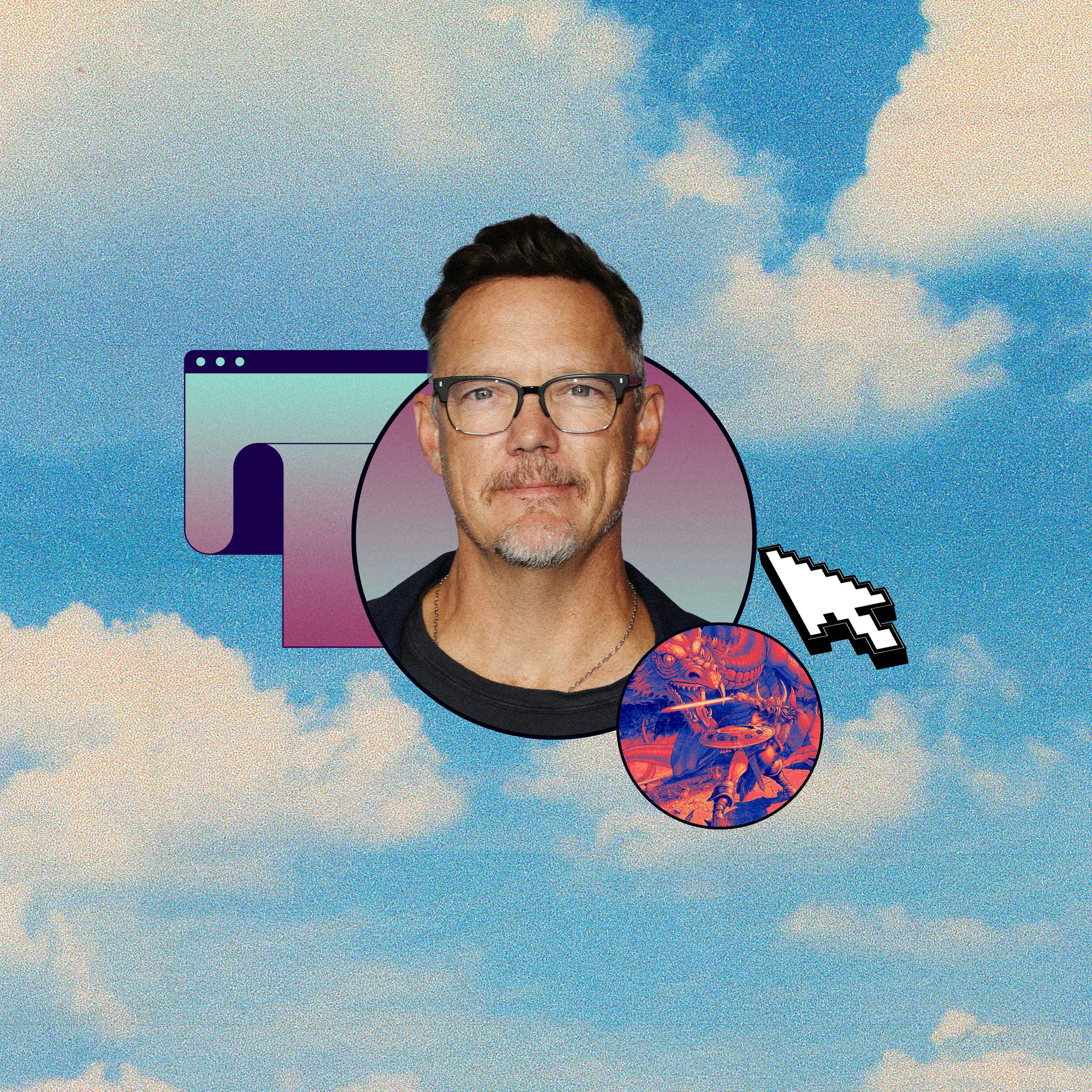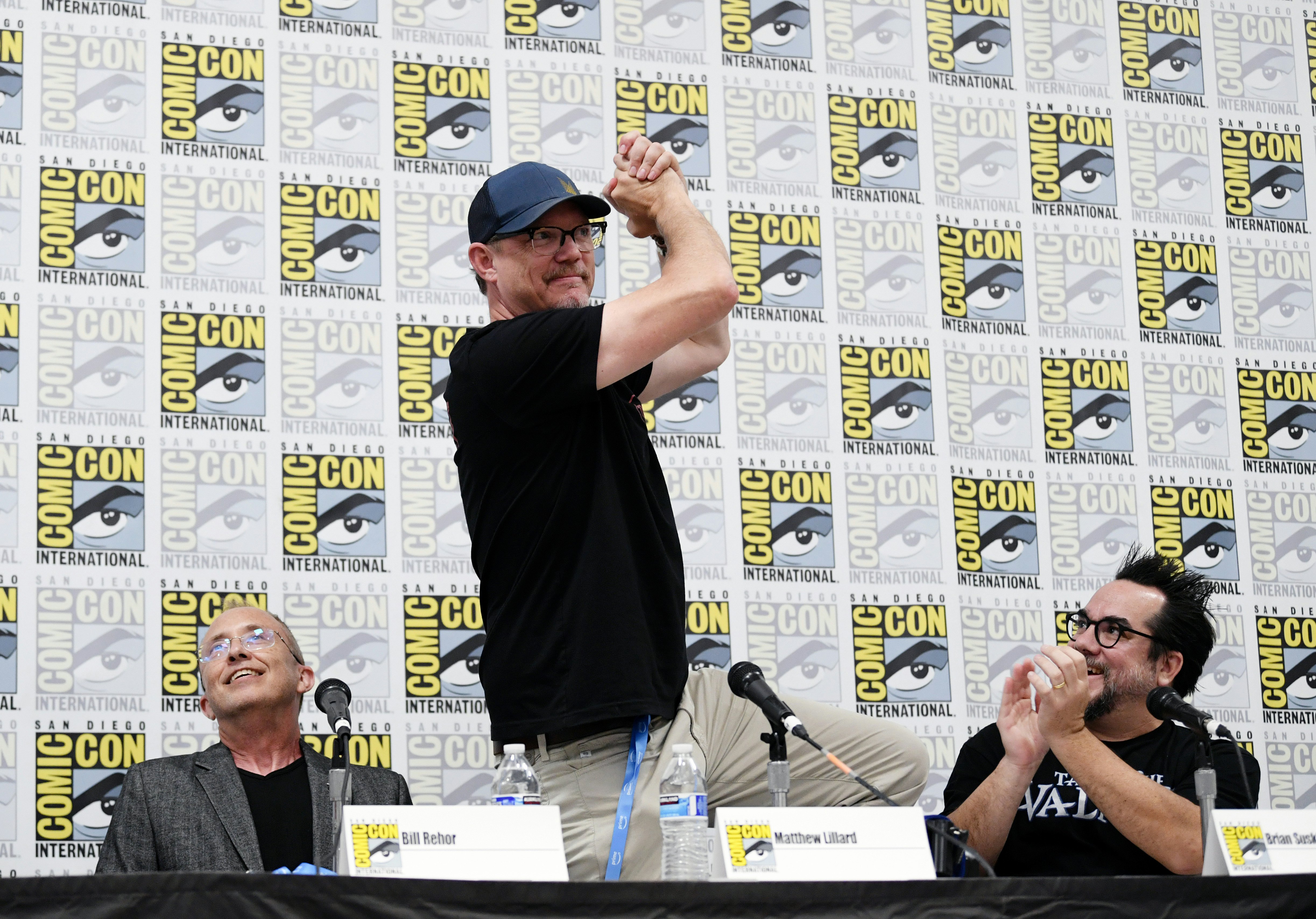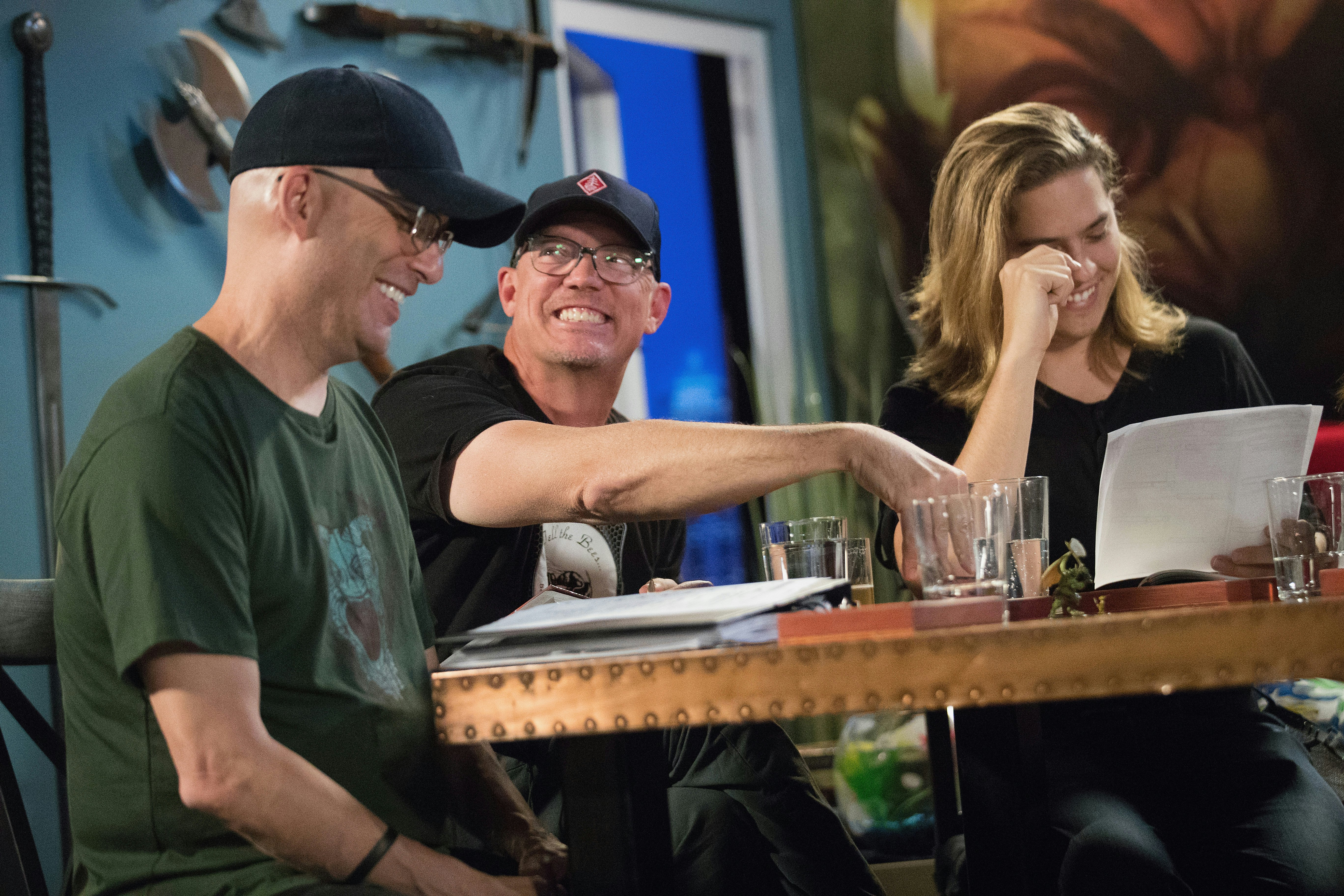
Matthew Lillard has made a living from having fun.
While he’s best known as a Hollywood actor of millennial hits like Scream, She’s All That, and the live-action Scooby-Doo, more recently, he’s harnessed the power of his Dungeons & Dragons obsession into a thriving side hustle. In 2018, Lillard and his best friends co-founded Beadle & Grimm’s, a tabletop gaming accessories company. The founders have all played the same continuous campaign of D&D together for more than 30 years and counting, and it’s company policy that they must still make time to play as a group.
“We had to make an edict of the company that when we go on quarterly retreats, it is built to play games,” Lillard tells Inverse. “We started a company, so we stopped playing games. We got away from the thing we love most because we were working.”
“Nothing about what I do is built on making money. What I do is built on finding my joy.”
While Hollywood’s labor strikes have left most actors out of work and unable to promote new releases, Lillard still has a busy autumn ahead. Currently, he’s preparing to launch a new geek-oriented whiskey, Quest’s End, with every bottle containing one chapter of a serial fantasy epic written by game designer Kate Welch and illustrator Tyler Jacobson. Lillard is also starring in Faster, Purple Worm! Kill! Kill!, an improv comedy show built around sessions of D&D for the upcoming Dungeons & Dragons Adventures FAST platform. (Lillard clarifies Faster, Purple Worm! Kill! Kill! is not a struck series, so discussion of it is not in violation of the SAG-AFTRA strike.)
Inverse hopped on Zoom with Matthew Lillard to talk about his origins with Dungeons & Dragons, the characters he first started out with, and how decades of playing in an imaginary world led to unforeseen success as a man in his 50s.
Geeking Out is an Inverse series in which celebrities tell us about their nerdy and niche interests, hobbies, or collections.
This interview has been edited for clarity.

What are your origins with Dungeons & Dragons?
It started when Dungeons & Dragons started, a long fucking time ago. I grew up in Detroit, moved to Orange County, and felt like an outcast. At some point, we were running around the neighborhood, and one of my neighbors said, “We should play Dungeons & Dragons.” We were more interested in painting the figures than we were playing the game. Then I got to high school and realized cool kids don’t play Dungeons & Dragons. Most sensible kids walked away [from the game out of] self-preservation. I don’t think kids have that anymore, kids can play D&D without being maligned. But back in the ’80s, that was not the case.
When did you get back into D&D?
When I was 20 or 21, I was in acting school. My roommate at the time had brought his books, those core rulebooks. A month later, five of us were playing Dungeons & Dragons in the lobby of Circle in the Square, a Broadway theater. We started at 10 at night and finished at 5 in the morning. That was it. Those guys were my best friends in the world and we still play Dungeons & Dragons today. The five of us are the core members of Beadle & Grimms’, which is built on premium gaming accessories for D&D, Magic: The Gathering, and everything in between.
When D&D emerged in the mainstream, it was haunted by the widespread Satanic Panic. As a young kid, what was it like playing a so-called forbidden game?
I don’t know if it did. We knew it wasn’t satanic. That’s not how we approached the game; we were kids. The Satanic Panic kind of happened around the time I walked away from the game. So that cultural event never changed how I thought about the game. In the ’80s, you were the outsider looking in. It was brutal. You were either in or you were out, and being out was brutal.
“I recognize in my life that I have the power to positively affect people by loving and seeing them for who they are.”
I kind of know what you mean. I grew up when anime and reading comics was still considered uncool, yet people went to see X-Men in theaters.
There’s still some idiot out there somewhere making fun of somebody for something they don’t get. But there is a different place to find strength. If you look at Critical Role and Matt Mercer, you now have counterculture heroes. Matt Mercer stands up and accepts everyone and has this ability to make you feel good about yourself. We never had those kinds of heroes. There’s no doubt I recognize in my life that I have the power to positively affect people by loving and seeing them for who they are. I take that very seriously.

Given that you’ve played the game since your early 20s onward, in what ways did your game evolve or mature as you matured as people?
The men I play with have been through every facet of my life. Since I started acting, since my first job, breakups, and love affairs, and getting married, and having children, and losing parents. All of us have been through the cycle of life. I do think that playing the game when you were a kid, you took it for granted. Now, we collectively respect that time more. I still play the same way. I play with four actors and one ex-Navy. We all play full-throated, fully voiced. But we as men have changed, and that has changed how we respect [each other] and look at the game.
Every new iteration of Dungeons & Dragons comes with major changes to the rules and gameplay. How has your table adapted to every edition?
We don’t deal with that. The reality is we play how we play, sort of like how you get to be an old man: “I play the way I play, damn it!” We went from [editions] 3.5 to 5.0, and that was a big system change, but for us, whether you change a spell or change mechanics, we’re still going to play as we play.
Beadle & Grimm’s produced 20 episodes of TV called Faster, Purple Worm! Kill! Kill!, which is coming, and one of the great things about that game is that each episode is one hour long, each game is played by a different group, and each game is just as good as the next. There is no right or wrong way to play this game. Whatever the rulebase is 3.5 or Pathfinder or World of Darkness or whatever, there is no wrong way to game.
“Make friends and then play. Don’t play to make friends. Find people that are like-minded.”
What is Faster, Purple Worm! Kill! Kill! exactly?
Faster, Purple Worm! is the story of four adventurers going off to be heroes of legend. They end up meeting a 10th-level historic monster and getting obliterated. Every show is one hour, and every show has four characters dying every single time. It’s hilarious. You think it would get repetitive, but the reality is that the game is different and funny every time. There is a freedom like nothing we’ve ever seen.
We started playing live at Guild Hall in Burbank. We started playing with seven people, the next week with 21 people, and by the time we got done with our eight-week run, we had a sold-out standing room only. It became a hit. We were talking about doing the show live on the road, but Dungeons & Dragons said, “We want to make it a TV show.” We did, and it’s been awesome.
What makes Dungeons & Dragons a great platform for improv comedy?
Really high stakes. High stakes allow you to find gallows humor. People are already telling stories, so their defenses are down. There’s freedom within that form. You’re playing with people you know and love. To me, it’s the ability to be accepted at the table for who you are and that allows you to open up. And people are naturally funny.
You’ve been playing Dungeons & Dragons with the same group of people for over two decades now…
Thirty-two years!
Thirty-two years! For most people, it’s a miracle to keep the same game going for a few months. What’s the secret to having a D&D table with longevity?
An ongoing great story. Great DMs. Friendships beyond tables. Make friends and then play. Don’t play to make friends. Find people who are like-minded. I was lucky that I found my best friend, and we happened to find out that we play D&D. People are like, “I have to find a game,” only to walk into the wrong game, and that’s not a way to spend a life. The best way to spend a life is to find friends and then play. Also, “I can’t DM” is such a crock of shit. It’s just your own insecurity and fear, and fear does not serve you. If you’re looking for a game, start DMing.







